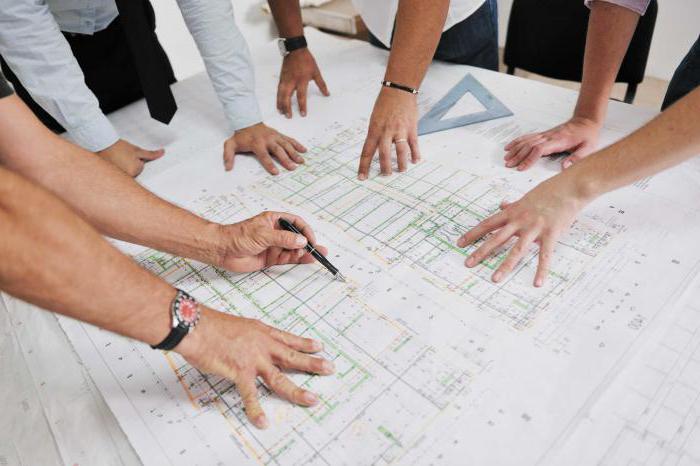At the beginning of the 21st century, the rule that economists and lawyers were powerful was the secretly established rule. It is these professions that are still the most popular among both applicants and their parents, who are eager for a bright future for their children. Is this the right approach? What are these beliefs based on, and are they true right now?
Destroying Myths
At the stage of the collapse of the Soviet Union, when the economy and production were bursting at the seams, indeed, the country needed knowledgeable specialists in economic and legal sectors. But this was a one-time action, and the majority of the population took this as a trend, and now the consequences of what happened are observed. By a peculiar inertia, people are sure that they will remain out of work with technical professions and specialties, because in the nineties they were out of work. Children watch films in which lawyers have expensive cars and chic mansions, the younger generation wants the same. As a result - a bunch of applicants who have applied for law and economics. In previous years, so many specialists from these industries have graduated that vacancies will now be filled about half a century.
Prestige and technical education are synonyms
The economy is accelerating its pace of development. In this regard, there is a shortage of employees in the field of industry, construction. In modern realities, technical professions will always provide their owner with a job and a steady income. Workers with technical education are appreciated, there are not so many of them, therefore, when changing the management or other changes, the specialist will not be fired. It will simply be unprofitable to part with it.
Which professions are technical?
 The variety of technical professions is divided into two categories: those for which higher education is required, and those for which it is not required. The latter include always sought-after crane operators, bulldozers, plumbers, welders, joiners, painters and others. These are working technical professions, and such people work with their hands, directly performing a number of physical duties. Those who have received higher technical education can become engineers, production managers and so on. In general, they are not directly involved in physical labor, although they are familiar with the mechanisms of work both in theory and in practice.
The variety of technical professions is divided into two categories: those for which higher education is required, and those for which it is not required. The latter include always sought-after crane operators, bulldozers, plumbers, welders, joiners, painters and others. These are working technical professions, and such people work with their hands, directly performing a number of physical duties. Those who have received higher technical education can become engineers, production managers and so on. In general, they are not directly involved in physical labor, although they are familiar with the mechanisms of work both in theory and in practice.
Narrow profile
Most fear that, having received a technical education, they will have too narrow specialization. Now it has become very fashionable to use the term "convergent specialist" - one who owns several skills at once and can cope with a number of tasks at once. But doing a lot rarely means doing well.
None other than the targeted orientation of technical professions, it is capable of educating true specialists in their field who can become highly paid professionals. When a person improves and understands precisely in his field, this makes him a valuable qualified employee.
1. Electrician

A popular and sought after profession in the labor market. Our whole life is connected with electricity, it is already in the most remote corners of the globe, and therefore people are always needed who know how to organize its work. This profession requires high qualifications, because an electrician must be able to provide both the serviceability of wiring a small apartment, and huge industrial facilities. To work in production and design energy-saving systems, an electrician needs to have 4 or 5th category.
The advantage of this profession is its great demand. Also, an electrician will be able to secure additional income by going to private orders. Good recommendations from friends - and the electrician’s phone is already torn from calls, because you want to be sure that the called specialist will definitely help.
2. Mechanic
 This specialist works with mechanical devices, checks their technical condition and carries out repairs in the event of a breakdown. A person who has received this profession on the basis of secondary education can count on such responsibilities as performing repair work, drawing up instructions for the operation of equipment, training working personnel in the rules for using equipment. If a person graduates, he can become a mechanical engineer. Then the main part of the working day in his duties will include the development of new equipment, control over subordinates and the preparation of reporting documents.
This specialist works with mechanical devices, checks their technical condition and carries out repairs in the event of a breakdown. A person who has received this profession on the basis of secondary education can count on such responsibilities as performing repair work, drawing up instructions for the operation of equipment, training working personnel in the rules for using equipment. If a person graduates, he can become a mechanical engineer. Then the main part of the working day in his duties will include the development of new equipment, control over subordinates and the preparation of reporting documents.
In addition to direct work with equipment, the mechanic prepares scheduling plans for his inspection, participates in the acceptance of new equipment, considers proposals for the modernization of mechanisms and equipment, monitors the implementation of labor protection standards.
3. The builder
 Literally one of the very first professions in the history of mankind. For many, a builder is one who literally builds, for example, lays bricks. But everything is a little more complicated. Again, the type of activity of such a specialist depends on his education and qualifications. There are construction workers and engineering workers, those who think through the process. The first group includes painters, masons, roofers, installers, and so on. If there weren’t these people, we wouldn’t live in new high-rises, wouldn’t roll along branched roads.
Literally one of the very first professions in the history of mankind. For many, a builder is one who literally builds, for example, lays bricks. But everything is a little more complicated. Again, the type of activity of such a specialist depends on his education and qualifications. There are construction workers and engineering workers, those who think through the process. The first group includes painters, masons, roofers, installers, and so on. If there weren’t these people, we wouldn’t live in new high-rises, wouldn’t roll along branched roads.
A bricklayer lays the foundation, erects walls of bricks or blocks, he must be knowledgeable in masonry systems, standards for its quality, know the various details and prefabricated structures. The roofer performs coating and repair of the roof, isolates it from moisture and heat. The work of the installer is to arrange the work of wiring, the installation of transformers, electric motors. He also draws overhead lines and lays cables in the ground. The painter brings finished constructions to a finished look. He must understand the variety of coatings, the methods of their application, the rules of drying and finishing. But the team leader does the same, but he is still responsible for the result.
4. Constructor
 Planning, sketches, calculations are familiar words for a person who has the knowledge of a specialist designer. From the available resources, the design engineer creates new objects of the material world. He uses, of course, not magic, but his knowledge. For this profession, higher education is required, but again, you can get a specialized secondary - "construction technician."
Planning, sketches, calculations are familiar words for a person who has the knowledge of a specialist designer. From the available resources, the design engineer creates new objects of the material world. He uses, of course, not magic, but his knowledge. For this profession, higher education is required, but again, you can get a specialized secondary - "construction technician."
In any case, only after gaining enough experience, the designer will be able to cope with his duties with high quality. Incidentally, they include the creation of a certain object or mechanism for which the documentation on the construction of this object should be prepared. The designer must take into account many factors and nuances: the adequacy of resources, the qualifications of the workers, the available transportation methods. There is not much creative in this profession, but if you want, you can become an inventor.
Conclusion
Of course, these are far from all technical professions. Their list is so large that everyone will find a job to their liking. Summing up, it can be argued that technical specialties are currently very popular in society. Competition in the industrial or construction sector is much less than in the economic. Specialists with a technical profile will be provided with work and good earnings, they are valued and even hunted for. For the development of the economy, it is not economists and lawyers who are very important, but just locksmiths, electricians, painters and mechanics.